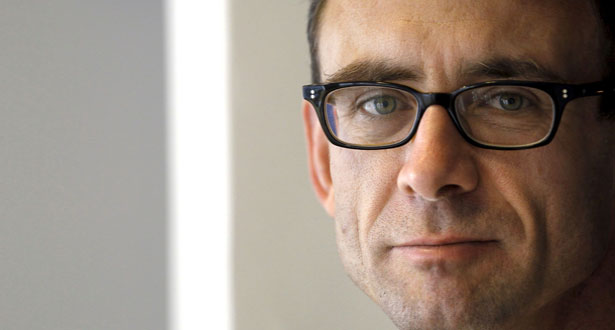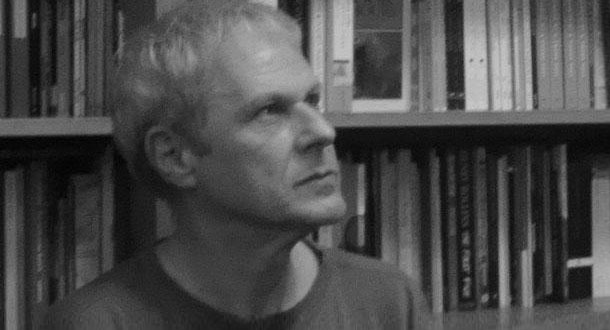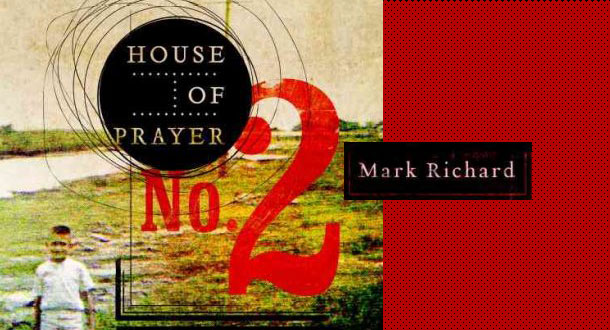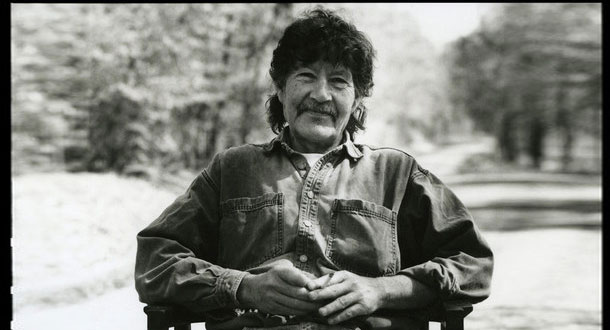Poets were once central to public life. The Ancient Greeks and Romans regarded poetry as the best way to record epoch-making events, laud emperors or deities, and map the quests completed by heroes. Wherever a city fell or a conqueror rose, a poet observed from the sidelines and would, later, carve their account into cool clean lines of dactylic hexameter. Civilization, politics, and moral principles compressed into feet and couplets; history registered as art.
Somewhere along the line since, however, poetry’s civic status faded – perhaps in the palaces of Renaissance princes, who liked to control the flow of words through bestowing, and removing, private patronage? Poetry became a luxury, a privilege reserved for residents of ivory towers, far removed from everyday discourse, reserved for the most personal expression. But, thanks to initiatives like Poetry In Motion on transport systems it didn’t disappear from public spaces entirely.
And now, amid the cacophony of twenty-first century living, the officially sanctioned City Poet is making a comeback. From Sydney to Seattle, governments and local authorities are appointing poets they feel represent their unique civic style. Part local ambassador, part educator, part grass-roots organizer, part badge of honor, the City Poet puts words back on the streets.
Typically, a City Poet is selected from a field of established writers with strong local connections for a term of two years. The remit varies, but usually involves the chosen poet leading workshops and readings, and writing poems to mark official occasions and celebrate the idiosyncratic qualities of their city, be it Fresno or Reykjavik. This suggests municipal leaders have come to recognize the value of poetry as a public and long-lasting record of what their city represents at a given moment. Far cheaper and more portable than a marble monument, a specially commissioned poem can similarly enshrine a city’s achievements and aspirations in a form that can be communicated across oceans and to future generations.
City Poet sounds like a great gig if you can get it. Although the yearly stipend is unlikely to pay your rent (every penny of those government funds has to be clawed out of a budget), the two-year tenure opens up all kinds of opportunities for sharing your work with some of the people who matter most in your community. It also legitimizes the role of poet and poetry in our society. It’s heartening to think that our culture is finding different ways to express itself and be remembered, and that poetry is still a crucial channel for sharing experience and ideas.
Steven Reigns was selected as West Hollywood’s City Poet in October 2014. Reigns grew up in St. Louis, Missouri, but has been resident in the historic Norma Triangle neighborhood of West Hollywood for more than a decade. His first poetry collection was published back in 2001, and he has since published six chapbooks, received six artist-in-residence grants from the Department of Cultural Affairs of the City of Los Angeles, and taught a renowned annual autobiographical poetry workshop for LGBT seniors (and edited an anthology of their writings) “My Life is Poetry.” He has also taught writing workshops around the country to LGBTQ youth and people living with HIV.
Reigns’ job description includes highlighting the City of West Hollywood through the literary arts and creating a new body of literary work that celebrates the “diversity and vibrancy” unique to the area. He is also tasked with “stimulating poetry in the local community” and creating “excitement about the written word”.
What did you do to be selected?
The City of West Hollywood created a Poet Laureate committee to select an applicant. It was during this process they renamed the Poet Laureate position to City Poet. I was their first appointed. It would have been an honor regardless but I was especially touched to be the inaugural poet for the position. I keep joking to friends, “You always remember your first.”
How did you build your reputation as a poet before reaching this point?
Being an isolated writer never interested me. The first writers I was attracted to, poets and otherwise, were socially and politically engaged. These were my role models and so I’ve always been community focused and active. Shortly after publishing my first collection at the age of 25, I started teaching writing workshops to LGBTQ groups across the country. What prompted me was how uninterested or intimidated young people in my community were by literature, especially poetry. I blame two things for this, elitism in the arts and the lack of exposure to writing that was identifiable. Soon after I taught workshops to people living with HIV. Almost ten years ago I started My Life is Poetry, the first ever-autobiographical poetry-writing workshop for LGBT seniors. My community engagement is something that interested the city in appointing me.
What was your vision for the position at the outset, and how has the reality compared?
My love, my art form, might be one of the most underappreciated art forms currently. One becomes accustomed to a lack of enthusiasm or interest. My biggest reality shock was how the position legitimized me and my work to people. My writing style and quality hasn’t dramatically changed and yet my reception has. This is a great, validating joy. It’s what bestselling authors or filmmakers feel. It’s also been a lesson on how you’re the same person after being knighted as you were before the sword taps your shoulder. I’m hearing yes and praise more often now than I’m hearing no. As a poet and organizer of literary programming, this is a dream I wish every artist could experience.
I had some initial ideas that have taken shape and other ideas that I’ve postponed. West Hollywood has a free shuttle on the weekend for bar goers. I talked with Mike Che and the city about having poetry or lines of poetry posted inside the shuttle, similar to the Poetry In Motion project in the New York subways. I rode the shuttle late at night and realized its aim is to safely transport intoxicated people. I laughed as the shuttle cruised down Santa Monica Boulevard at 1am with drunken men singing along to a pop song on the radio. Selecting poems for such an audience, keeping the mood, isn’t the easiest task for me and so I postponed it. I intend on revisiting it in the fall.
What do you think are your major achievements in the role so far, and what would you still like to achieve?
In April for National Poetry Month, I taught poetry writing workshops at Melrose Elementary School in West Hollywood. This was the most I’ve laughed in my position or during any literary event. The students were energized by writing and came to the tasks with a wide-eyed openness that only children bring.
The biggest impact project so far has been the lamppost banner project. I had 22 poets’ portraits and a line of their poetry printed on large banners that hung from lampposts on Santa Monica Blvd. This is a high traffic area, where commuters slowly proceed down the boulevard. The fastest would be at 35mph.

Public art is consumed by more people than any work at a museum. I want big exposure for poetry. The great thing about lamppost banners advertising museum exhibitions is our streets are lined with great works of art. It prompted me to think this would be the best way to expose massive amounts of people to poets and poetry. New York had poetry posted on subways. It seemed fitting for Los Angeles to have poetry that is available to people driving cars. This exposure to poetry was free, didn’t require tickets or library cards, or even cracking open a book. It was accessible to everyone.
What impact do you think a City Poet can have on a community? Should every city have one?
Poetry is the language of our emotions. It is what we run to when our feelings are the most intense. Countlessly I’m told how someone writes when they become depressed, fall suddenly in love, or end a relationship. Poetry is read aloud at funerals and weddings. Though we seek it out during these pinnacles of our life, it’s common for people to claim to dislike the form or not know much about it. Poetry needs advocates and champions. I see the proliferation of Poet Laureate programs as proof of this.
Is being a City Poet about self-promotion?
I don’t see the position as my opportunity to specially get my work out there more. I want to be a champion for other poets’ works. For a World AIDS Day event, I worked hard at finding the right poem to read at the ceremony. The demographics and death rate of the disease domestically has changed dramatically. I wanted to find a poem that wasn’t rooted in the outdated past but addressed a more current sensibility. This really resonated with the audience.
The West Hollywood City Poet position is a two-year appointment. I’ve already had people express interest in being the next City Poet, yet I’ve never heard of them. It’s a position that involves civic engagement, so it’s surprising to me that I don’t see these people at literary functions in the city. This is disheartening. I don’t see the title as a Boy Scout badge to show off, I see it more as a calling.
Modern city life is dirty, loud, fast, distracted—the very opposite of poetry. We record important events in hurried, even fragmentary prose, summing up an already brief news bulletin in a single Tweet before moving on to the next big thing. By contrast, poetry creates a space in which we pause, reflect and maybe think again. It’s very encouraging that more and more cities are deliberately courting poets as official representatives—and that people are lining up to fill the positions. This new proliferation of publicly funded poets suggests we’ve not quite yet traded our cultural souls in exchange for Kardashians. Homer and Agathais would be proud.
You can find out more about Steven and his work at his website here.

About the author
Karina Wilson is a British writer based in Los Angeles. As a screenwriter and story consultant she tends to specialize in horror movies and romcoms (it's all genre, right?) but has also made her mark on countless, diverse feature films over the past decade, from indies to the A-list. She is currently polishing off her first novel, Exeme, and you can read more about that endeavor here .

.jpg)




